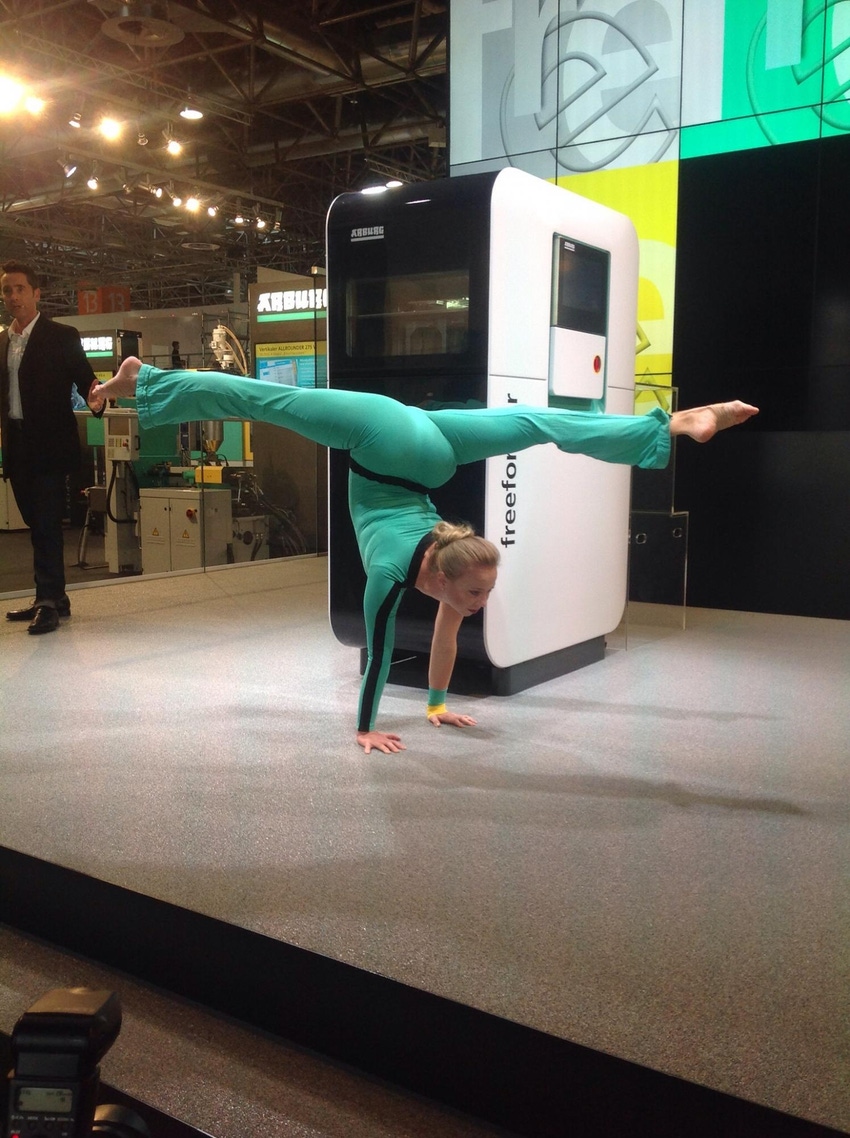K 2013: Arburg drops first K bombshell — it invents new additive manufacturing process
Düsseldorf — The worlds of precision injection molding and additive manufacturing are coming to a dramatic meeting point here at K 2013.
October 15, 2013

Düsseldorf — The worlds of precision injection molding and additive manufacturing are coming to a dramatic meeting point here at K 2013.
In an announcement in a late-day press conference before the show opening, Arburg—a leading global supplier of mostly small injection molding machines—said it has developed and will begin selling an additive manufacturing machine that uses regular plastic resins. Arburg has filed for 20 patents covering various aspects of its technologies, which were only indicated in vague terms during formal presentations and follow-up interviews.
The machine uses inkjet-type printing heads, but has a very different approach in how material is delivered to the heads. Most inkjet systems use filaments of material. Resins in the Arburg "Freeform" process are first melted with a screw, similar to how resin is plasticized in the injection molding process. The resin is then broken into tiny droplets in a piezo electric system. Size and surface of the droplets made from very homogenous material creates parts with strong mechanical properties, according to Arburg.
"The new Freeformer enables us to produce plastic parts without a mold by layering droplets of liquid plastic, resulting in components whose strength is approximately 70% to 80% of conventionally produced injection molded plastic parts," said Herbert Kraibuhler, managing director of technology and engineering.
The Arburg announcement is important for several reasons:
Arburg is a technical powerhouse that can bring significant knowledge of melt plastication to an industry that has traditionally been more focused on how material is deposited.
Arburg has a global sales and distribution network very plugged into companies that make small plastic parts. Traditional additive manufacturing has been more focused on design engineers and prototyping.
Kraibuhler said the only limitations on materials that can be used is with reinforcement. Glass fibers do not work in its droplet system. But everything else is on the table, including standard elastomers.
Most additive manufacturing systems are based on very expensive proprietary materials, which often have limited functional properties. Stratasys, however, says it uses standard plastics.
The Freeformer can be configured as a single- and two-component machine.
The big unknown is price of the machine. That has not yet been determined. A small number of machines are expected to be market tested next year.
You May Also Like


